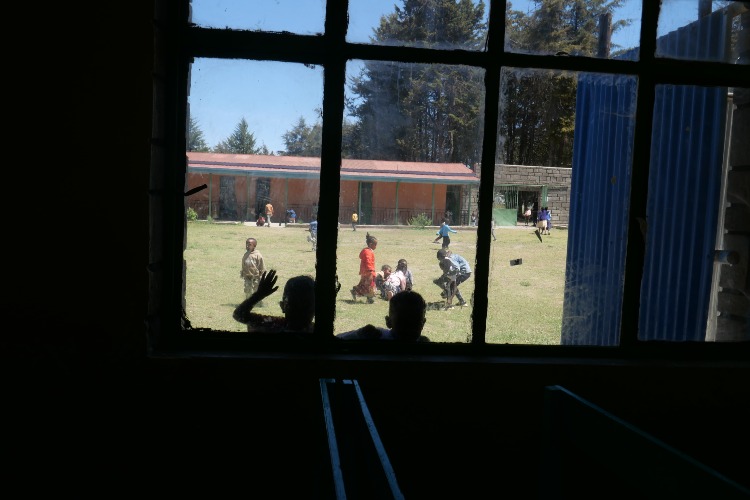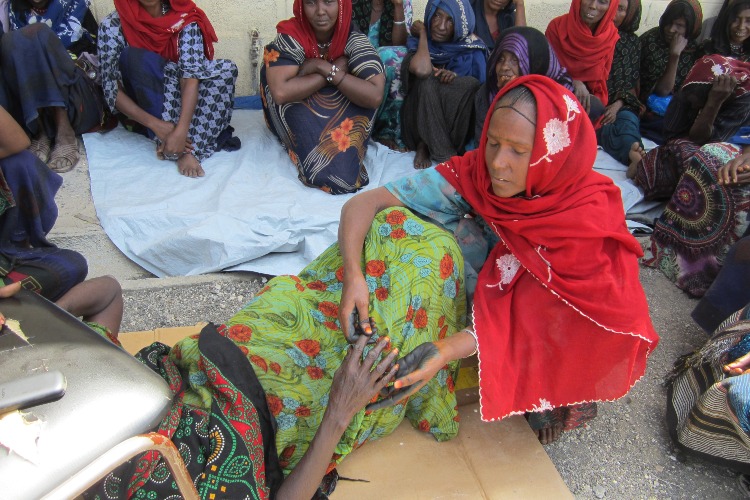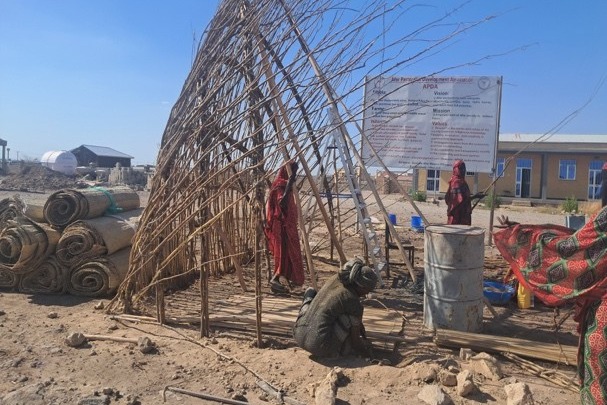Deadly aftermath in Afar: Long-term recovery needed
10 March 2023
Following back-to-back disaster and conflict, the people of Afar are dealing with the deadly consequences of disaster and war.
Fast update:
-
While peace was declared on 2 November 2022, the aftermath of this crisis has been as devastating as the crisis itself.
-
Because even though people no longer have to flee their homes — many don’t have a home to return to. They may no longer be in danger of dying by gunfire — but they are in serious danger of dying of starvation and disease.
-
It's vital that our attention now turns to long-term recovery.
-
Ethiopiaid's aim is to help the Afar people not just survive, but thrive in a new life that is free from conflict and disaster.

.
What's happening in Afar?
Back-to-back natural disasters (drought, locust plagues and never-before-seen floods) followed by two years of civil conflict in Ethiopia’s north have combined to create the worst humanitarian crisis for the Afar society in recent history.
While peace was declared on 2 November 2022, the people of Afar are still dealing with the deadly consequences of years of war and disaster. In fact, the aftermath of a crisis as severe as the one that ravaged the Afar region can often be as devastating as the crisis itself.
Our local partners, the Afar Pastoralist Development Association (APDA), report that 25,000 households in the area have been reduced to destitution. The livelihoods they once depended on, such as their livestock, bee farms, shops and trading assets, have been looted, burnt or destroyed.
With scarce food and health services, the situation becomes more dire every day.

.
Impact on communities
Growing poverty >>>
- 25,000 households reduced to destitution (livestock, bee farms, shops and trading assets looted, burnt or destroyed).
- About 3 billion ETB (AUD $85,000+) worth of community infrastructure destroyed.
Food scarcity >>>
- Huge inflation due to markets being torn apart by conflict.
- Flour costs 5 times as much as what it did in early 2022. Fresh produce is barely affordable. Meat is purchased only for special occasions, if then.
- Some families have not eaten for 5-7 days.
Scarce maternal health >>>
- High numbers of unnecessary maternal death, due to inability to reach women (ambulances & roads destroyed) or due to lack of health services (three hospitals that could deliver babies “rendered dysfunctional” – all essential equipment looted or burned).
- This year already, 26 maternal deaths have happened in communities due to an inability to reach the mothers.
- Project partners have only one ambulance left, which is under huge strain with high demand and unsafe roads.
School destruction >>>
- Hundreds of schools are destroyed and teachers fled.
- Even the cost of exercise books is unaffordable. It normally cost parents 85 ETB (AUD $2.30) to buy supplies for a child in primary school; now it’s 400 ETB (AUD $11).
Widespread trauma >>>
- Huge trauma of women who have lost their children and husbands under horrific circumstances.
- Youth and children are scarred, fearful the gunfire and fighting will return. Without school, there is nothing to take their minds off these horrors.

.
How is Ethiopiaid supporting long-term recovery?
While Ethiopiaid's on-the-ground project partners, the Afar Pastoralist Development Association (APDA) are still providing communities with emergency relief like food, safe drinking water, medical supplies, shelter and soap, we need to think long-term and work towards a more resilient, self-sufficient future for the people of Afar.
To address this, Ethiopiaid and APDA are responding in the following way:
Growing poverty >>> Restore sustainable livelihoods
Livestock are the lifeblood of Afar, so APDA are equipping hardest hit families with 10 breeding goats (including initial fodder, medicine & transport) which they can breed for milk and meat, plus sell or trade at markets
Food scarcity >>> Focus on agricultural training
APDA have already built 5 agricultural sites in various areas of Afar, near rivers or water sources. Here they’re training community members how to grow and harvest various produce, so they can produce and sell goods without dependency on other areas and turn themselves into a sustainable source of supply.
Scarce maternal health >>> Invest in health infrastructure
APDA already send out their rural health teams on foot to remote areas to screen for and treat malnourishment. Now their aim is to train these health teams in how to handle obstetric emergencies, especially when there are no health clinics nearby. They also aim to purchase and deploy a second ambulance to save mothers’ and infants’ lives.
School destruction >>> Sponsor children’s education
APDA trained and sent out 10 new literacy teachers in 2022 to carry out informal education in rural communities and displacement camps. Often the lessons happened outside under a tree, with children sitting on the ground. Now APDA’s aim is to help children access formal schooling, even if their parents can’t afford it, by sponsoring their school fees, textbooks, stationery and even their boarding costs when school is far away.
Widespread trauma >>> Train Women Extension Workers in counselling
APDA already train and deploy Women Extension Workers to stand up for women’s rights and health, promote girls’ educate and educate against dangerous traditions like female genital mutilation. These women are greatly respected as a trusted voice in their communities. APDA want to train these women in trauma counselling too, so they can help women, children and families heal and recover.

.
“The fighting has stopped … now we must help a highly traumatised community to recover.”
Valerie Browning, Co-Founder & Program Director of Afar Pastoralist Development Association (APDA)
.
.
Looking ahead: our priorities
-
Provide trauma counselling
-
Restore sustainable livelihoods to hardest hit families with 10 breeding goats
-
Purchase and deploy a second ambulance
-
Provide scholarships for children to return to school
-
Send more health workers to remote communities where health services were destroyed




